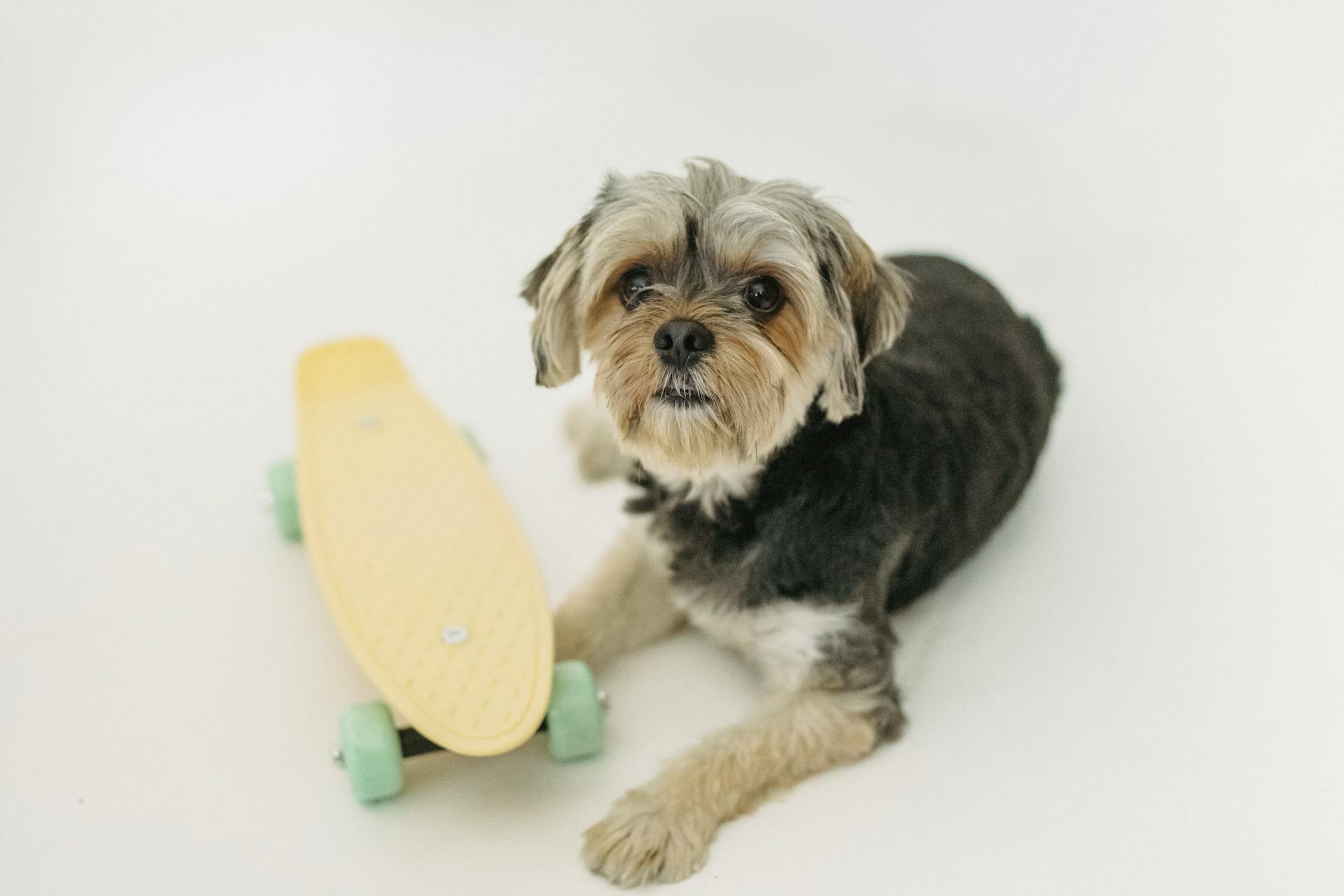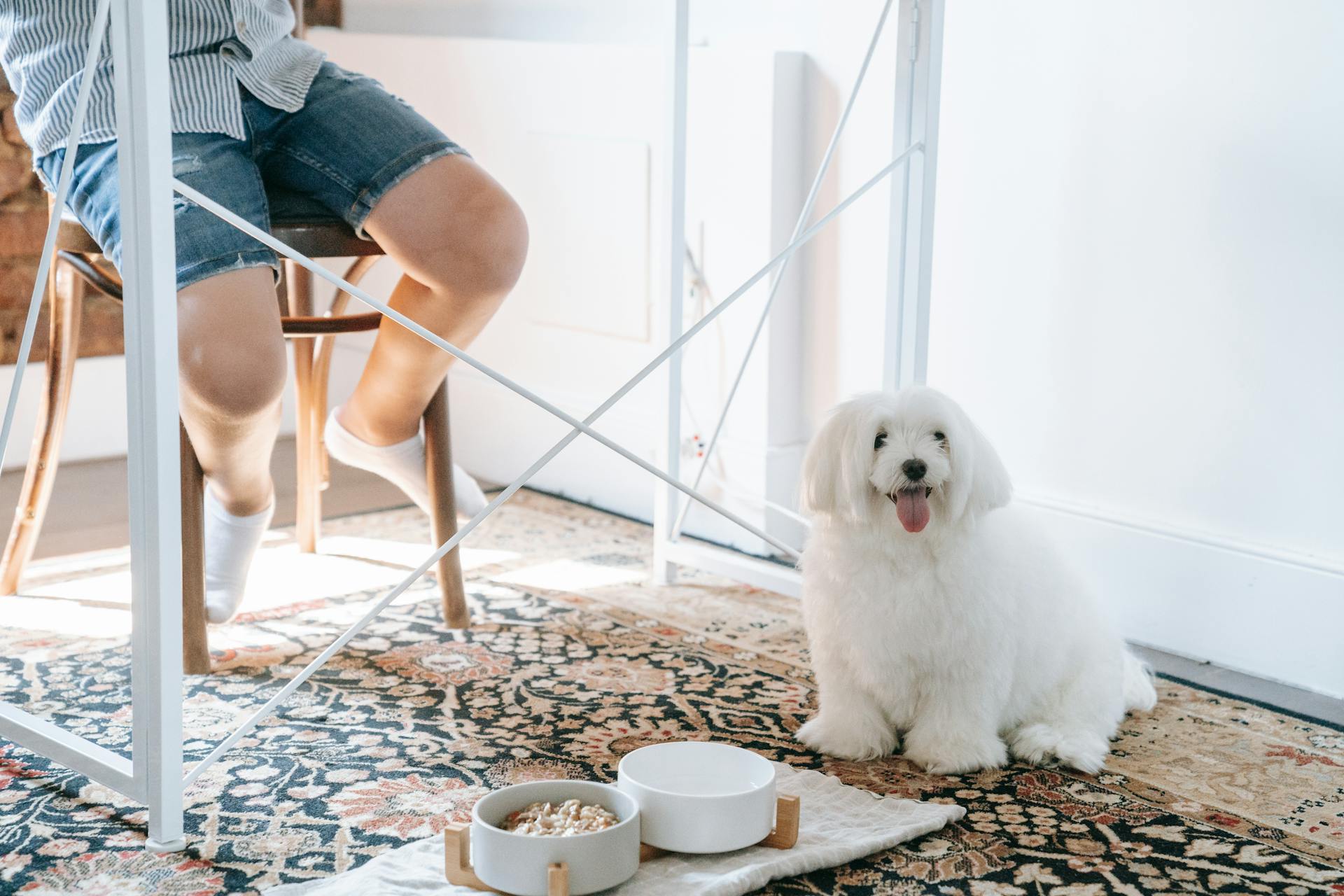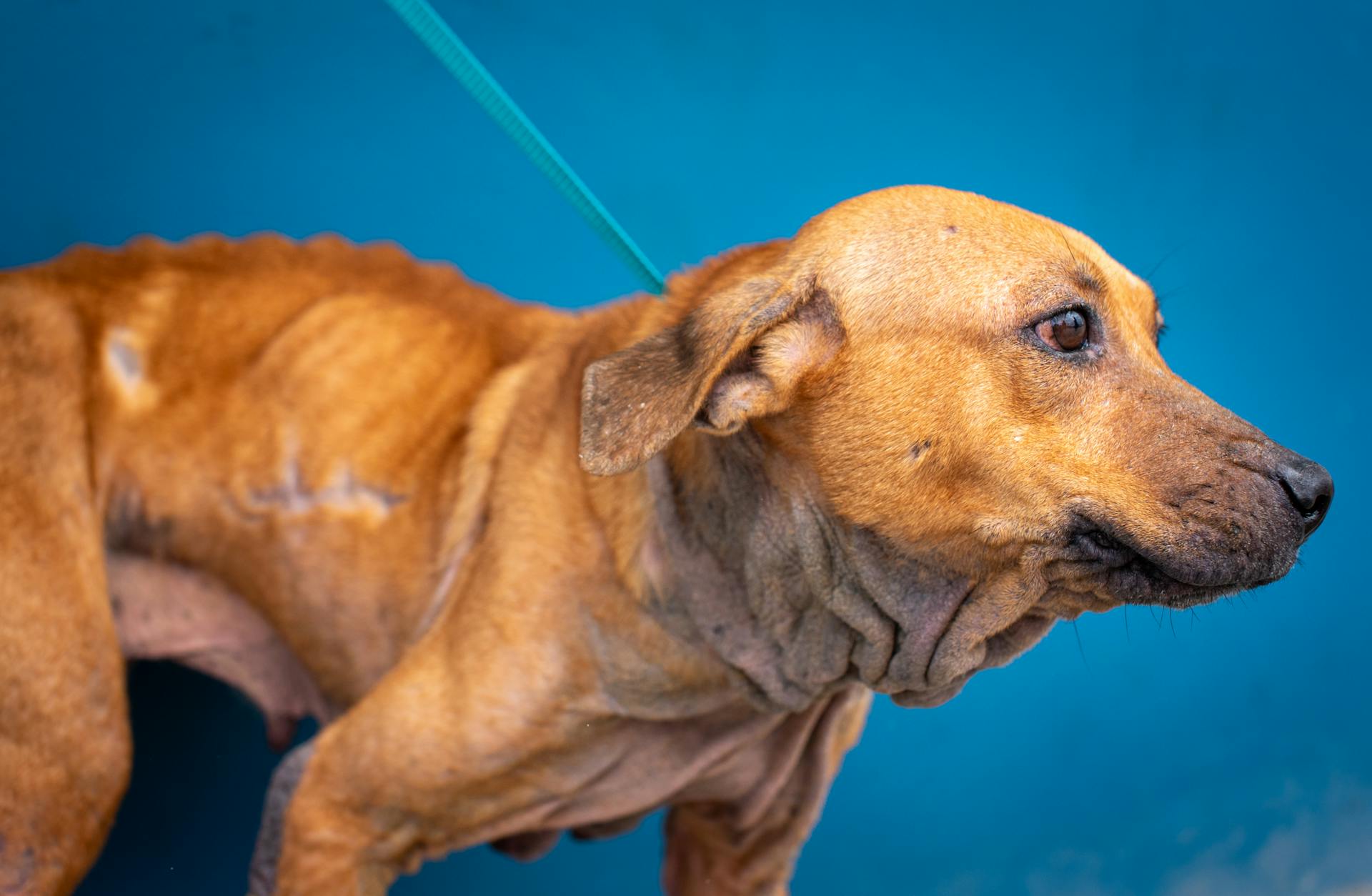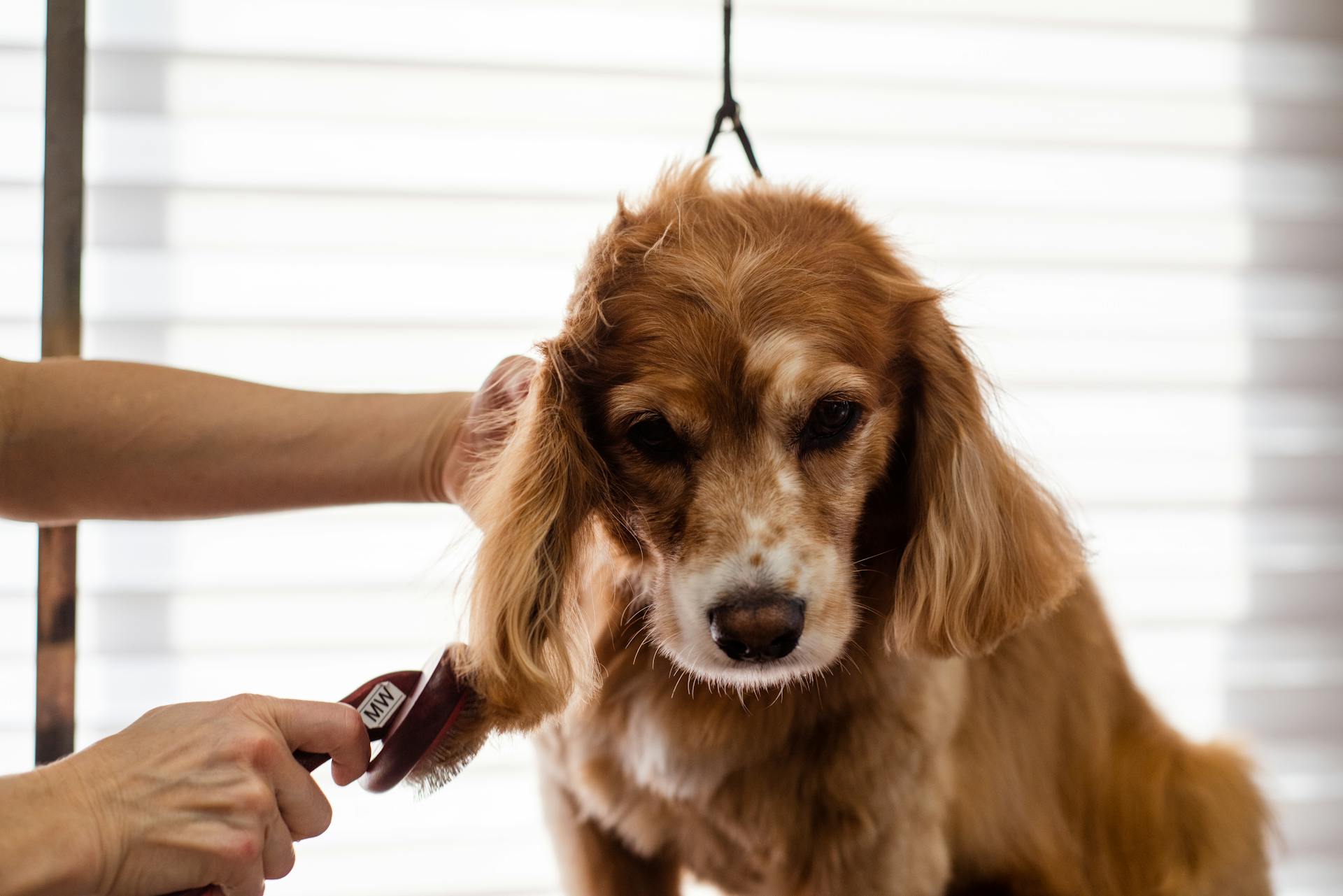
The Coton de Tulear Mix is a unique and lovable breed that combines the best qualities of the Coton de Tulear and other dog breeds. They are known for their fluffy coats and affectionate nature.
These dogs are relatively small in size, weighing between 8-12 pounds and standing about 10-12 inches tall. They have a gentle and playful personality that makes them perfect for families with children.
One of the most notable characteristics of the Coton de Tulear Mix is their low-shedding coat, which requires regular grooming to prevent matting and tangling. This makes them a great choice for people with allergies or who prefer low-maintenance pets.
They are highly intelligent and easy to train, responding well to positive reinforcement techniques. With patience and consistency, they can learn a wide range of commands and behaviors.
Breed Characteristics
Coton de Tulear mixes are known for their sweet and cuddly nature, making them a pleasure to be around. They are highly affectionate with people and get along well with kids and other pets.
Here's a breakdown of their breed characteristics:
Coton de Tulear mixes have a moderate exercise need, which means they require daily walks and playtime but don't need extensive exercise to stay happy and healthy.
Quick Facts
The Coton de Tulear is a beloved breed for many reasons. They originated in Madagascar, an island off the southeastern coast of Africa, where they were the cherished lapdogs of nobility.
One of the standout characteristics of Coton de Tulears is their affectionate nature. They are extremely loving and social dogs that thrive on human companionship. In fact, they are often described as "sweet, cuddly, clownish" and are known to form strong bonds with their family members.
Here are some key facts about Coton de Tulears:
With moderate exercise needs, Coton de Tulears are perfect for families with smaller living spaces or for those who enjoy leisurely walks. They are also relatively low-maintenance when it comes to grooming, as their soft, cottony coat requires minimal shedding.
Related Breeds
If you've fallen in love with the Coton de Tulear, you might also be interested in these similar breeds.
The Maltese is a small, gentle dog with a silky white coat, making it a great companion for apartment dwellers.
Bichon Frise is a playful and adaptable breed that requires regular grooming to prevent matting.
The Bolognese is a small dog with a gentle and affectionate nature, similar to the Coton de Tulear.
Havanese dogs are known for their friendly and outgoing personalities, making them great family pets.
Here are some breeds you might also consider:
- Maltese
- Bichon Frise
- Bolognese
- Havanese
Health and Care
The Coton de Tulear mix is a generally healthy breed, but like all breeds, it's prone to certain conditions. With proper care and attention, you can help your Coton de Tulear mix live a long and happy life.
One of the most common health issues in Coton de Tulears is Luxating patellas, where the kneecap slips out of place. This can be painful and lead to arthritis, so it's essential to protect your puppy from jumping on and off furniture while their joints develop.
Cotons are also susceptible to Progressive Retinal Atrophy (PRA), a genetic condition that can lead to blindness. Fortunately, there's a genetic screening test, and responsible breeders will have their dogs' eyes certified annually by a veterinary ophthalmologist.
To keep your Coton de Tulear mix healthy, regular exercise is crucial. Aim for an hour of exercise per day, including morning and evening walks, games of fetch, and accompanying you on errands when safe to do so.
Here's a quick rundown of recommended health screenings for Coton de Tulears:
- Eye examination
- Luxating patella
- Heart evaluation
- Hip evaluation (including for Legg Calve Perthes disease)
- Elbow evaluation
- Hypothyroidism
- DNA-based screening for various genetic conditions
By staying on top of your Coton de Tulear mix's health and providing regular care, you can help them live a long, happy life.
Health
The Coton de Tulear is generally a healthy breed, but like all breeds, they can be prone to certain health issues.
Their life expectancy is 15-19 years, which is quite impressive.
Cotons can suffer from patellar luxation, a condition that causes the kneecap to move out of place, leading to lameness and "bunny hopping." This can be painful and may lead to arthritis.

Progressive Retinal Atrophy (PRA) is a genetic condition that affects vision and can eventually lead to blindness. Fortunately, there is a genetic screening test available.
Degenerative Myelopathy (DM) is another genetic condition that can cause progressive weakness in the rear limbs, eventually leading to paralysis. Like PRA, there is a genetic screening test available.
Hip dysplasia is a heritable condition where the thighbone doesn't fit snugly into the hip joint, leading to arthritis. X-ray screening is available to detect this condition.
Reputable breeders provide health certifications for a puppy's parents, including OFA certification for knees, hips, elbows, and hearts, as well as certification of eye health from the Canine Eye Registry Foundation.
Here are some recommended health tests for Coton de Tulears:
- Patella Evaluation
- Ophthalmologist Evaluation
- Hip Evaluation
- Cardiac Exam
It's essential to remember that health clearances are not issued to dogs younger than 2 years of age, as some health problems don't appear until a dog fully matures.
By being aware of these potential health issues, you can take steps to prevent them or catch them early on, ensuring your Coton de Tulear lives a long and happy life.
For another approach, see: Coton De Tulear Health Issues
Care

The Coton de Tulear is a hardy dog who enjoys playing in all types of weather, including snow and rain.
Living arrangements are quite flexible for this breed, as they can thrive in apartments or larger homes, and even do well in households with children and other pets.
To keep your Coton de Tulear healthy and happy, aim for an hour of exercise per day, which can include morning and evening walks, games of fetch in the yard, and accompanying you on errands.
Cotons take well to training, especially when it's presented in a positive manner, so use praise, play, and treats to reward them for good behavior.
Some specific grooming tips include brushing the coat at least three times per week, using a pin brush for the coat, and breaking up mats and tangles on the legs, elbows, and around the ears.
A regular schedule, frequent outings to do their business, and praise when they potty in the right place can help with housetraining, which some people find challenging with this breed.

Here are some general tips for exercising your Coton de Tulear:
- Aim for an hour of exercise per day
- Morning and evening walks
- Games of fetch in the yard
- Accompanying pet parents on errands when safe to do so
- Dog sports, including agility, rally, and obedience exercises
- Puzzle toys to stimulate the mind
- Leashed “sniff” walks
By following these care tips, you can help your Coton de Tulear live a happy and healthy life.
Diet & Nutritional Needs for Dogs
The Coton de Tulear mix, like any dog, needs a high-quality commercial dog food that meets nutritional standards set forth by the Association of American Feed Control Officials (AAFCO) to ensure a complete and balanced diet.
Choose a formula that fits your dog's stage in life, whether puppy, adult, or senior, and consider factors like age, weight, and activity level when determining the best food and diet for your Coton de Tulear mix.
Portion meals are better than leaving food out all day, and be sure to factor calories from treats into their daily food allotment to prevent pet obesity.
Giving your dog human food and table scraps is not recommended, but make sure the food you choose is free of ingredients that are harmful to dogs, such as high fat, artificial colors, and additives.
Feed your Coton de Tulear mix according to their individual needs, and consider the following general guidelines:
Remember to measure your dog's food and feeding them twice a day rather than always leaving food out, and keep an eye on their waist and ribs to ensure they're at a healthy weight.
Consult with your veterinarian if you have any questions about your Coton de Tulear mix's diet or health, and work with them to determine the best food and diet for your dog's individual needs.
Grooming and Appearance
The Coton de Tulear mix is a beautiful breed with a unique appearance. Their soft, thick hair coat is one of their most distinctive features.
Their voluminous, white, cottony hair coat is a hallmark of the breed, and it's prone to forming mats and tangles if not properly cared for. Daily brushing using a pin brush with uncoated metal pins can help prevent this issue.
To keep their coat looking its best, owners should brush behind the ears, elbows, and legs with special attention. A spray conditioner may be applied to lessen the possibility of hair breakage.
Some owners prefer to keep their Coton's hair coats short for easier care, but this requires regular visits to the groomer to maintain the haircut. A cute topknot secured by a coated hair elastic can reveal the dog's eyes.
Here are some grooming tips to keep in mind:
- Brush your Coton's coat daily with a pin brush to prevent mats and tangles.
- Use a fine-toothed metal comb for the hair on the Coton's face.
- Bathe your Coton regularly, depending on how dirty they get, with a whitening shampoo to keep their coat looking sleek and shiny.
- Trim your Coton's nails once or twice a month, as needed, to prevent scratching and damage to their paws.
Overall, the Coton de Tulear mix is a low-shedding breed, making them a great choice for those with allergies, but they still require regular grooming to prevent mats and tangles.
Size
Coton de Tuléars are a relatively small breed, but they can grow quite a bit as they mature.
Males typically stand between 10 to 12.5 inches tall at the shoulder, while females are slightly smaller, standing between 8.5 to 11 inches tall.
You can expect your Coton de Tulear to grow rapidly during their first six months of life, with females stopping a little sooner than males around 10 to 12 months old.
Fully grown males weigh between 9 to 15 pounds, while females weigh between 8 to 13 pounds.
Here's a weight chart to give you a better idea of how big your Coton de Tulear will get as they grow:
With their compact size, Coton de Tulears make great companions for apartment dwellers or those with smaller living spaces.
Grooming & Maintenance
The Coton de Tulear's coat is one of its most distinctive features, with a soft, thick, and fluffy texture that's often compared to cotton. It's usually four inches long by adulthood.
Daily brushing is essential to prevent mats and tangles, especially behind the ears, elbows, and legs. A pin brush with uncoated metal pins is the best tool for the job.
A fine-toothed metal comb is perfect for the face, and a cute topknot secured with a coated hair elastic can reveal your Coton's adorable eyes. Some owners prefer to keep their pets' hair coats short for easier care.
Bathing depends on how dirty your Coton gets, but weekly bathing with a whitening shampoo can help keep their coat looking sleek and shiny. Avoid rubbing your pet with a towel to prevent knotting up.
Your Coton's ears should be checked several times a week, and any excess hair should be removed. Ear cleaning may be needed when there's excess wax or debris in the ear canal.
A good home dental regimen and proper nail care are also essential. Brush your dog's teeth daily, and trim their nails once or twice a month as needed.
Here's a quick guide to Coton grooming needs:
By following these tips, you'll be able to keep your Coton looking its best and prevent common problems like matting and tangling.
Training and Behavior
Training your Coton de Tulear mix is a breeze, as they are eager to please people and respond well to praise, play, and food rewards.
Early socialization is crucial to ensure your Coton mix puppy grows into a well-adjusted, happy dog. This means exposing them to different people, sights, sounds, and experiences from an early age.
Cotons love treats, which makes training a fun and rewarding experience for both you and your dog. They'll quickly learn what makes you happy and what doesn't, and will repeat the desired behaviors to earn a treat.
These dogs are smart and easy to train, but they can be stubborn at times, so consistency and positive reinforcement are key. With patience and practice, you can teach your Coton mix to be housebroken, perform tricks, and even excel in agility and obedience events.
Temperament
Cotons de Tulear are happy, easy-going and lovable dogs. They're bred to be your canine BFFs and take that job seriously.
These dogs are known for their comedic sense of timing and good humor. They'll even try to "talk" to you with their human-like vocalizations.
Cotons will bark to let you know someone's at the door or in the yard, but they're not yappy like some small dogs. They're more bark than bite, and once they've told you company's arrived, they'll rush to welcome the newcomers with sweet, slobbery greetings.
These bubbly extroverts love meeting new people and get along well with other dogs and cats. They're terrific family dogs and get along great with kids of all ages.
Cotons are eager to please, making them obedient and easy to train. They learn best through consistent repetition and positive reinforcement: treats, toys and praise for job well done.
Early socialization is key to ensure your Coton puppy grows into a well-adjusted, happy dog. It's essential to expose them to different people, sights, sounds, and experiences from an early age.
While Cotons can be stubborn at times, they're not hyper dogs and don't require a lot of exercise to tire them out. They're happiest just keeping you company and following you around all day.
Exercise and Energy Level
Coton De Tulears have moderate exercise needs, requiring at least a 30-40 minute daily physical activity.
They're naturally energetic and love to play, so daily walks or a game of fetch can help them burn pent-up energy.
Shorter walks are actually better than long distances for these little dogs, as their small legs can get tired easily.
Make sure your pet's preventatives and vaccinations are up-to-date before taking them on outdoor excursions.
Adequate opportunities for physical and mental stimulation can keep your Coton busy and away from boredom.
Tzu
The Coton Tzu, a cross between the Coton de Tulear and the Shih Tzu, is a popular breed known for its adorable appearance.
This breed is a mix of two dogs with good beauty traits, making it a beautiful dog to look at.
Feeding a Coton Tzu requires attention to its small size, meaning it only needs three meals a day.
It's essential to keep an eye on your Coton Tzu's weight to ensure it stays healthy.
Intriguing read: Shih Tzu Mutt
Bolonka

The Bolonka is a sensitive dog that requires patience when raising them when young. They need a lot of love and affection in the family.
They are known for their compassion and faithful nature, making them loyal companions. With proper care, they can thrive in a loving environment.
You should ensure that you groom and maintain their coat from time to time because it is long and thick. Otherwise, it can get damaged.
They are less than 10 inches in size, making them a great choice for families with smaller living spaces. They are also relatively low-maintenance when it comes to exercise, happy with daily walks or playtime at home.
Living with a Coton de Tulear Mix
Cotons are good with kids if kids are good with them, but it's essential to teach children how to approach and touch dogs and supervise any interactions between dogs and young children.
They're fun-loving and energetic, making them great playmates for older children who treat them respectfully. Always supervise interactions between dogs and young children to prevent biting or ear or tail pulling.
Cotons prefer the company of people, but they get along well with other Cotons, dogs of other breeds, and cats. If their people aren't around all the time, a Coton will appreciate having the company of another animal.
Never leave a Coton unsupervised with a child, no matter how good-natured the dog is.
Frequently Asked Questions
What are the disadvantages of a Coton de Tulear?
The Coton de Tulear breed is prone to certain health issues, including luxating patella, hip dysplasia, liver shunt, disc problems, and eye concerns, which can impact their quality of life and require regular veterinary care. Understanding these potential disadvantages is essential for responsible pet ownership and ensuring the long-term health of this charming breed.
What is the closest breed to a Coton de Tulear?
The closest breeds to the Coton de Tulear are the Bichon Frise, Maltese, and Havanese, all of which share similar characteristics with this small, fluffy dog.
Featured Images: pexels.com


